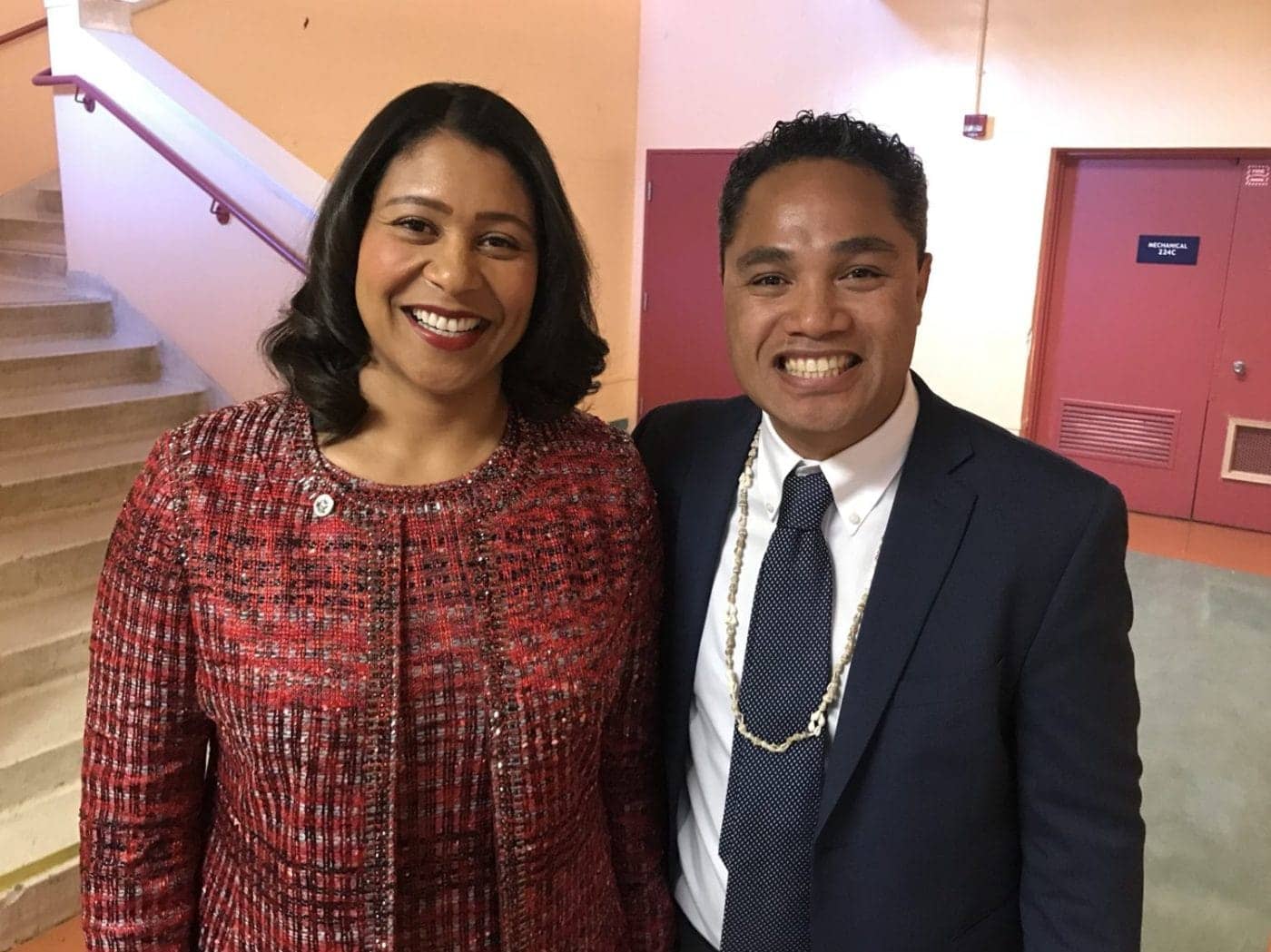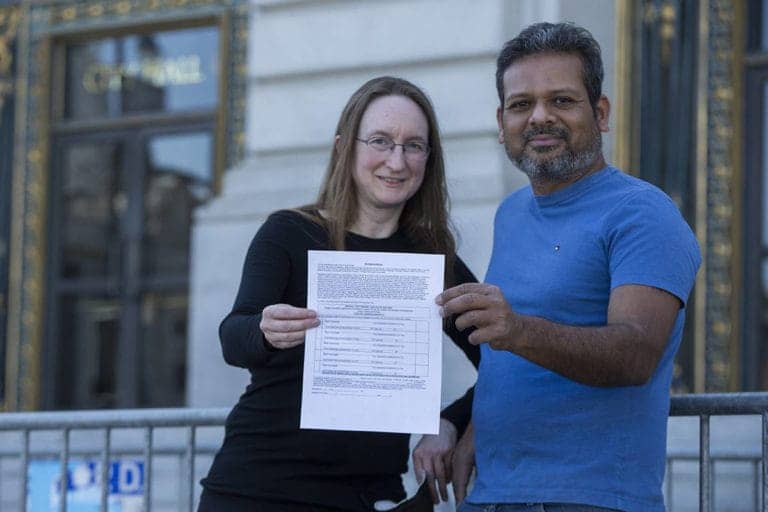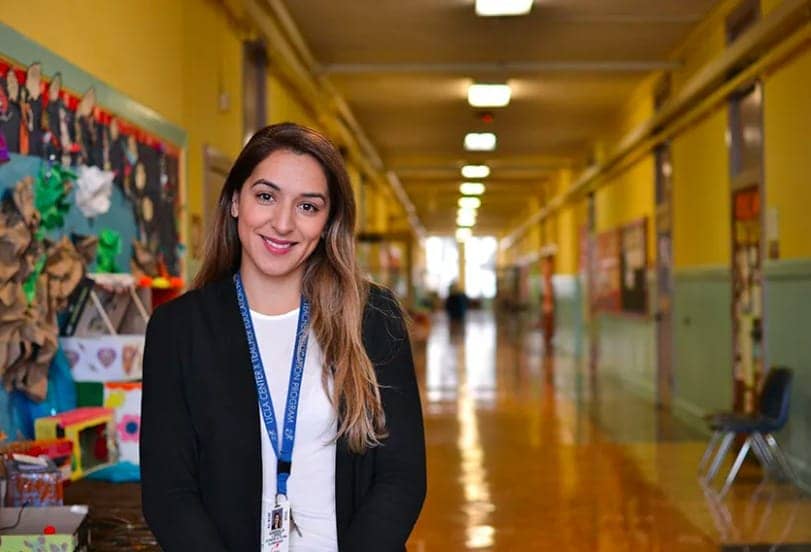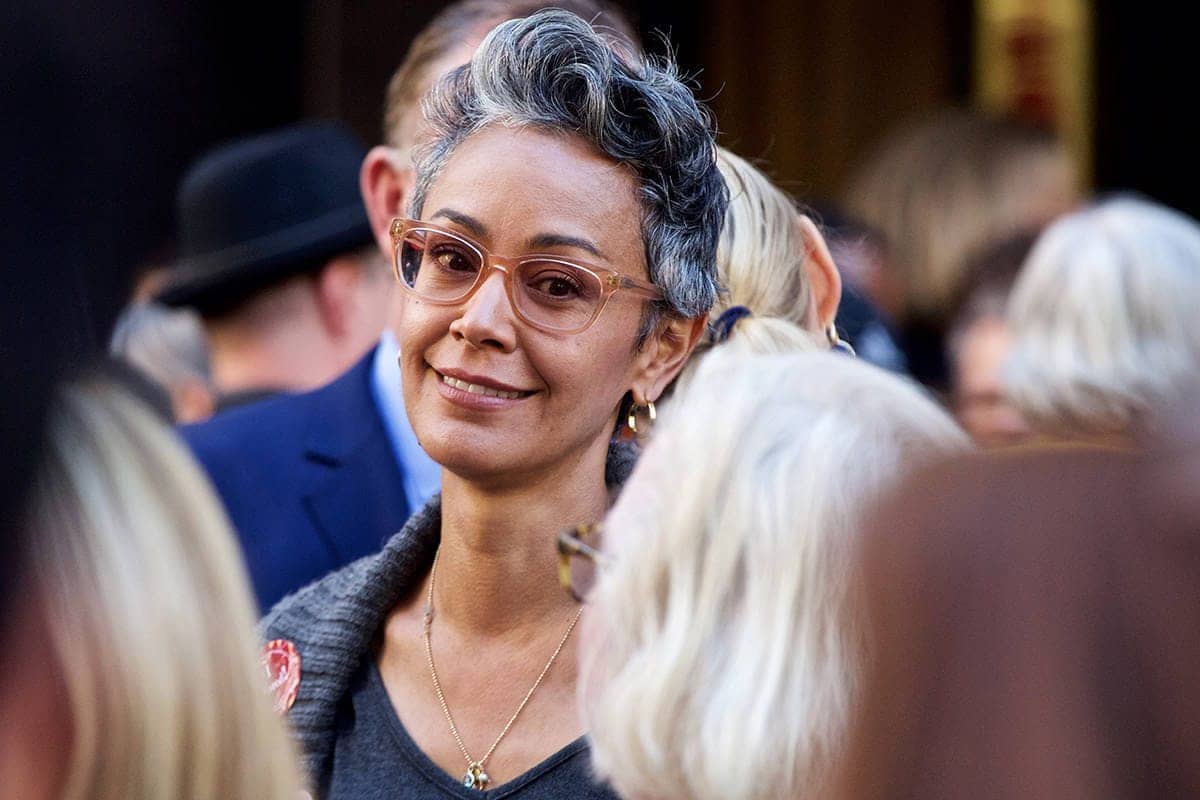
by Daphne Young
The three San Francisco Unified School District Board members who are facing a recall on Feb. 15 have their work cut out for them as they try to get San Francisco residents to vote “No” in the upcoming San Francisco Consolidated Municipal Election.
Voters citywide will get to decide on the SFUSD School Board Recall measure, which lists Faauuga Moliga, Gabriela Lopez and Alison Collins as Questions A, B and C, respectively, on the recall ballot.
John Arntz, the director of elections for the City and County of San Francisco, said: “This is the first ‘local’ recall for the SFUSD school district that I’ve seen since I’ve been here in 21 years.”
Artnz also says this is one of the costliest recall elections in recent history. “The Feb. 15 election will cost the city of San Francisco $8.5 million,” he stated.
To put that in perspective: The recall election for Gov. Gavin Newsom, which he ultimately won, cost San Francisco County approximately $11 million. Overall, the gubernatorial recall election cost the state and counties collectively nearly $276 million.
Taxpayers in San Francisco will foot the bill for both the SFUSD recall and two other races, the assessor-recorder and the state assembly race – which is only for residents living in District 17 – in the Feb. 15 election.
“The big difference between the governors’ recall election and the SFUSD recall election is that the state of California reimbursed counties in the governor’s recall election,” said Artnz. “That’s not the case for this recall. The cost for the SFUSD recall election will come from the city of San Francisco’s General Fund.”
This means taxpayers in San Francisco will foot the bill for both the SFUSD recall and two other races, the assessor-recorder and the state assembly race – which is only for residents living in District 17 – in the Feb. 15 election.
But it’s the SFUSD School Board members recall that’s been getting all the headlines. That’s because of two parents, relatively new to the Bay Area, Autumn Looijen and Siva Raj, who joined forces to get the recall on the ballot.

“Initially, our goal was just to get the schools to reopen,” said Looijen. “We had seen in San Ramon some parents had started a recall, and the schools were back open two weeks later. So, we thought, great. We’ll do it and the schools in San Francisco will reopen too.”
But Raj added, “We were a bit naive. We didn’t realize that the priorities of the school board were just so disconnected.”
Raj, who used to live in Alameda County, said “The school board [there] at least made a good faith effort. In San Francisco, it shocked us that not only were they not prioritizing the return; they were actively pushing parents away and they were not listening to parents at all.”
“What we saw with the SFUSD School Board is that they stepped back from their responsibility of educating our children,” added Raj. “During the pandemic, what we saw in San Francisco was that people had given our kids a laptop and said, ‘You’re basically on your own.’ And that was not acceptable.”
Recently, the SF Bay View sat down with each of the recall candidates, Moliga, Lopez and Collins, via Zoom to hear what they had to say about these allegations by local parents and the recall effort as a whole.

The president of the SFUSD School Board, Gabriela Lopez, said: “I do firmly believe it’s because of our response to reopening schools. I think that’s probably the biggest piece in this recall. Parents were seeing that our schools weren’t able to be open, because we didn’t have the resources, the supplies and safety measures in place to make that happen. And it was frustrating.”
Meanwhile Alison Collins, who’s probably come under fire the most due to her lawsuit against SFUSD over her demotion following controversial tweets, said: “Personally, I understand the frustration [of parents] and I share it.” Collins added: “My kids were home and we had to do distance learning, too. I’m a mother of twins, and it’s hard being a parent during COVID-19. But [the SFUSD School Board] had to do what’s best for our kids and make sure it was safe to return.”

Faaugua Moliga added: “The reason for the recall is not prioritizing the ‘reopening of schools.’ This recall is not about the school board; it’s about three individuals.”
Moliga, along with the other two board members facing recall, believe this recall is racially motivated because it’s targeting the three board members of color.
But Looijen says that’s not the case. “The initial tendency was to recall everybody,” said Looijen. “But the other members were not eligible to be recalled at the time we started. And so, we would have had to wait until July [2021] to start the recall if we wanted to recall the whole board. And we wanted to get this off the ground as fast as we could.”
Raj added: “Plus, on a street level, when we were getting people to sign petitions, there was a broad dissatisfaction with the entire school board.” Raj said, “It was not one individual. It was a collective dissatisfaction with the whole board.”
Other issues, like the renaming of schools during a pandemic, the growing budget deficit and the ongoing Lowell HS admissions debate, added to the list of reasons why SFUSD School Board members have been under attack during the pandemic.
“I’ll say for this board: We are probably the most on the ground and directly involved with parents. In fact, many of us can communicate with families in their language, and during the pandemic that’s been important.”
“We had come in from other school districts that were handling the pandemic very differently,” said Looijen. “In those school districts, reopening was the first and only thing on the agenda. We had very thorough information about what was happening. So, to come here to San Francisco, a very educated city, and watch school board meetings that went on for hours and they didn’t even talk about reopening until about hour seven – it was just ridiculous.”
Lopez responded: “I’ll say for this board: We are probably the most on the ground and directly involved with parents. In fact, many of us can communicate with families in their language, and during the pandemic that’s been important. And, unfortunately, these narratives aren’t the ones that we’re hearing more about.”
Lopez and Collins had an opportunity to speak to the community during a recent town hall hosted by the Visitacion Valley Community. But Moliga was the only SFUSD Commissioner to attend the virtual event.
“We appreciate Mr. Moliga showing up to answer our questions,” said Robert Cowan, with VVCU. “The other two candidates blew us off.”
The Visitacion Valley Community Unit is a coalition of community organizations whose mission is to foster cross-cultural collaboration and collective action between the different communities that make up Visitacion Valley.
Cowan says three years ago VVCU held debates with all of the SFUSD School Board candidates. “They joined us for similar town hall meetings with residents and they all made promises,” said Cowan. “But they didn’t keep them.”
During the Jan. 15 virtual event, Moliga was asked what he’ll do differently if he’s re-elected in the recall. “I’m always evolving,” Moliga said.
Regardless of the outcome of this election, contests for these same seats on the Board of Education – seats one, two and three – will appear again on the November 2022 ballot.
“I’ve been able to connect with more parents and sit down with folks to hear about their concerns. I had more in-depth talks with our Asian community. I continue to listen to the voices of folks. I want to sit down with Autumn and talk about things. The work is collaborative. I’m Measure C. Vote ‘No’ on Question C.”
Meanwhile, Collins, a longtime SFUSD educator, said: “Public education is about helping to build it up, not helping to tear it down.” She added, “You have two folks; one of them doesn’t even have kids in San Francisco schools.” Collins is Question A on the SFUSD recall ballot.
Lopez, a bilingual educator said: “This recall is a complete shame and it’s a complete waste of time and energy. It’s coming from people who don’t know anything about San Francisco schools, the background of the commissioners on the board, our commitment to education, the work that we’ve done. It’s clear they are new to the city and have other motives.” Lopez is Question B on the SFUSD recall ballot.
But, Autumn Looijen says: “Raj is an immigrant … and my children go to school in a different school district.” Looijen added, “We just want candidates who are good at governing. We want to make sure the administration does things right and hold them accountable. To have really hard discussions with a variety of people. So, we can come together as a community.”
Well, on Feb. 15, San Francisco voters will have the final say. And, if more voters choose “Yes” than “No” for any of the three SFUSD candidates, then the mayor will get to appoint a replacement, and that appointee will serve the remainder of the four-year term for the recalled Board of Education member.
Also, regardless of the outcome of this election, contests for these same seats on the Board of Education – seats one, two and three – will appear again on the November 2022 ballot.
So, let your voice be heard with your ballot! On election day, Feb. 15, 2022, polls will be open from 8 a.m.-8 p.m. Everyone who’s a registered voter in the city of San Francisco can vote in this recall election. For more information visit www.sfelections.org.
Daphne Young is the Education Reporter at the San Francisco Bay View National Black Newspaper. The Chicago native is an award-winning journalist who’s covered news for radio and TV stations around the country. She attended San Francisco State University and is a member of Delta Sigma Theta Sorority, Inc. If you have an education story that you’d like to see the Bay View cover, please contact Daphne by email: education@sfbayview.com.

 Store
Store


